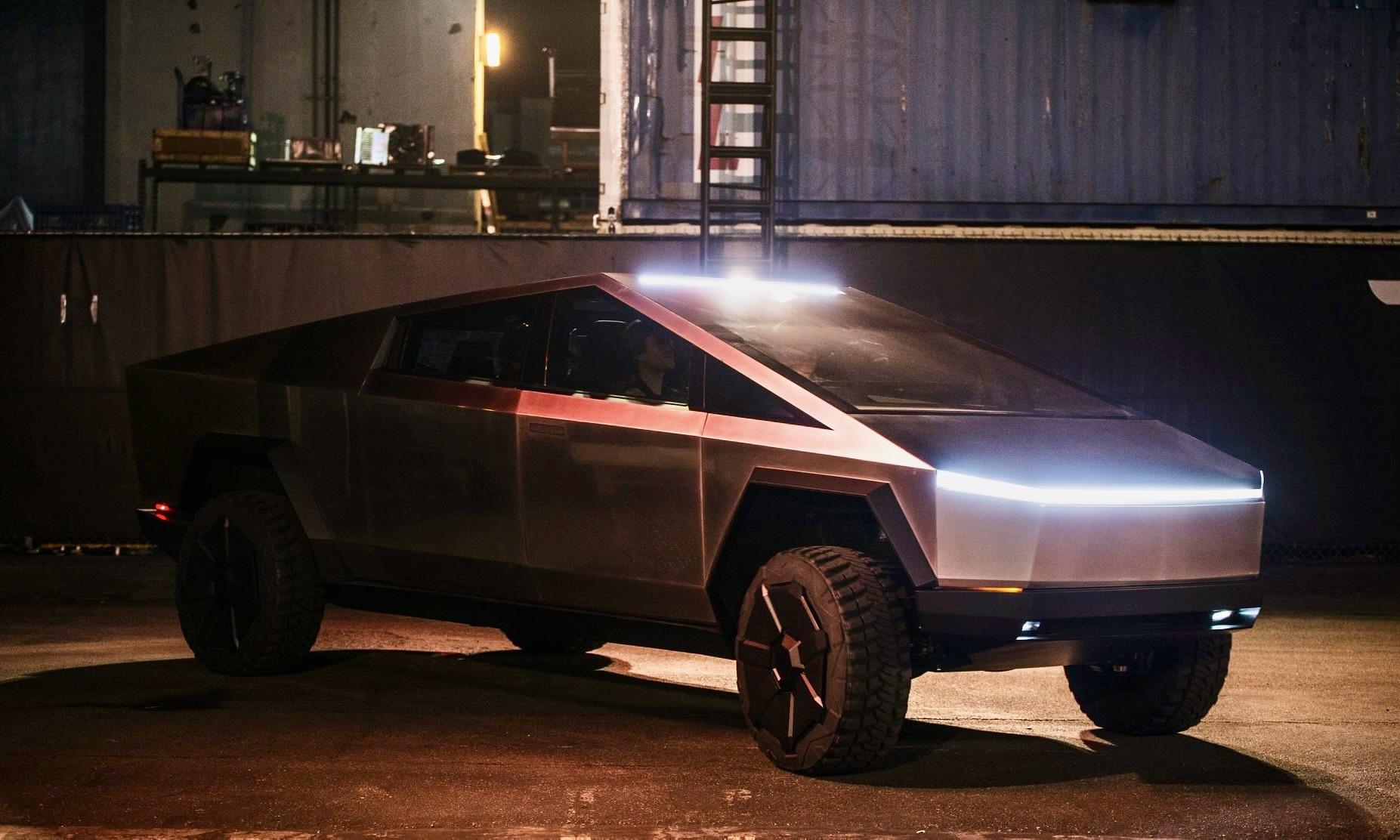Vehicles get deadlier as they grow larger and heavier. This is a trend that has some worried about Tesla's forthcoming Cybertruck, a 6,800-pound electric monster with sports-car acceleration that experts warn will be dangerous to pedestrians and lighter vehicle occupants.
Tesla CEO Elon Musk defended the vehicle in a recent X post. "We are highly confident that Cybertruck will be much safer per mile than other trucks, both for occupants and pedestrians," he penned. However, some in the vehicle safety world disagree.
Pedestrians Now Confront Elon Musk's Cybertruck
The Cybertruck, according to Michael Brooks, executive director of the Center for Auto Safety, a nonprofit consumer advocacy organization, poses a number of hazards to pedestrians. According to Tesla's website, the Cybertruck Cyberbeast model weighs 6,843 pounds and has a 0–60 mph time of 2.6 seconds. In comparison, the 2023 Ford F-150 weighs little more than 4,000 pounds and accelerates from 0 to 60 mph in around 5.5 seconds.
According to Brooks, the Cybertruck's tremendous acceleration capabilities, combined with its weight, imply that drivers will have less time to respond to pedestrians, making collisions with them more deadly. He claims that the Tesla Cybertruck will be unsafe for other automobile occupants as well.
"Just like Elon says, if you have an argument with another car, you will win—so long as 'winning' means inflicting life-threatening damage to other humans on the road," Brooks stated. Tesla did not respond to a request for comment.
Increasing Vehicle Size and Weight Raise Safety Concerns Amid Rising Pedestrian Fatalities
Concerns about automobile safety have intensified as pedestrian fatalities have risen to a 40-year high this year. According to a New York Times investigation, traffic deaths have also increased, with vehicle deaths per million climbing in the United States but falling in other affluent nations.
According to the National Highway Traffic Safety Administration (NHTSA), an estimated 19,515 people died in road accidents in the first half of this year. These figures are projected to climb as vehicles follow an industry trend in which autos, particularly trucks, gain weight and size each year, especially as they migrate to electric vehicles. The Cybertruck fits in with that trend.
"Vehicle weight in our fleet has continued to go up over the past 20 years," the Insurance Institute for Highway Safety, an independent organization that gives crash test ratings to new vehicles, told NBC News in a statement. Cybertruck joins an increasing number of trucks on the road that have abandoned gas engines in favor of battery-powered energy, with competitors ranging from Ford and Chevrolet to the upstart Rivian releasing variants.
"Electrification is taking weight increases to another level that will lead to dangerous outcomes," the Insurance Institute for Highway Safety added. The weight of the batteries that power electric automobiles can add hundreds, if not thousands, of pounds to the overall weight of the vehicle.
In addition to endangering pedestrians, larger cars will result in more fatalities in crashes with other vehicles since the passengers of smaller vehicles will be crushed more readily, according to the institute.



 Trump Orders Federal Agencies to Halt Use of Anthropic AI Technology
Trump Orders Federal Agencies to Halt Use of Anthropic AI Technology  Australia Targets AI Platforms With Strict Age Verification Rules
Australia Targets AI Platforms With Strict Age Verification Rules  AWS Data Center in UAE Hit by Fire After Objects Strike Facility Amid Regional Tensions
AWS Data Center in UAE Hit by Fire After Objects Strike Facility Amid Regional Tensions  Meta Signs Multi-Billion Dollar AI Chip Deal With Google to Power Next-Gen AI Models
Meta Signs Multi-Billion Dollar AI Chip Deal With Google to Power Next-Gen AI Models  Anthropic Refuses Pentagon Request to Remove AI Safeguards Amid Defense Contract Dispute
Anthropic Refuses Pentagon Request to Remove AI Safeguards Amid Defense Contract Dispute  Nvidia Earnings Beat Expectations as AI Demand Surges, Stock Rises on Strong Revenue Outlook
Nvidia Earnings Beat Expectations as AI Demand Surges, Stock Rises on Strong Revenue Outlook  Federal Judge Blocks Virginia Social Media Age Verification Law Over First Amendment Concerns
Federal Judge Blocks Virginia Social Media Age Verification Law Over First Amendment Concerns  Hyundai Motor Group to Invest $6.26 Billion in AI Data Center, Robotics and Renewable Energy Projects in South Korea
Hyundai Motor Group to Invest $6.26 Billion in AI Data Center, Robotics and Renewable Energy Projects in South Korea  Amazon’s $50B OpenAI Investment Tied to AGI Milestone and IPO Plans
Amazon’s $50B OpenAI Investment Tied to AGI Milestone and IPO Plans  AI is already creeping into election campaigns. NZ’s rules aren’t ready
AI is already creeping into election campaigns. NZ’s rules aren’t ready  U.S. Deploys Tomahawks, B-2 Bombers, F-35 Jets and AI Tools in Operation Epic Fury Against Iran
U.S. Deploys Tomahawks, B-2 Bombers, F-35 Jets and AI Tools in Operation Epic Fury Against Iran  Nintendo Share Sale: MUFG and Bank of Kyoto to Sell Stakes in Strategic Unwinding
Nintendo Share Sale: MUFG and Bank of Kyoto to Sell Stakes in Strategic Unwinding  OpenAI Faces Scrutiny After Banning ChatGPT Account of Tumbler Ridge Shooting Suspect
OpenAI Faces Scrutiny After Banning ChatGPT Account of Tumbler Ridge Shooting Suspect  Snowflake Forecasts Strong Fiscal 2027 Revenue Growth as Enterprise AI Demand Surges
Snowflake Forecasts Strong Fiscal 2027 Revenue Growth as Enterprise AI Demand Surges  OpenAI Hires Former Meta and Apple AI Leader Ruomin Pang Amid Intensifying AI Talent War
OpenAI Hires Former Meta and Apple AI Leader Ruomin Pang Amid Intensifying AI Talent War  Hyundai Motor Plans Multibillion-Dollar Investment in Robotics, AI and Hydrogen in South Korea
Hyundai Motor Plans Multibillion-Dollar Investment in Robotics, AI and Hydrogen in South Korea 































